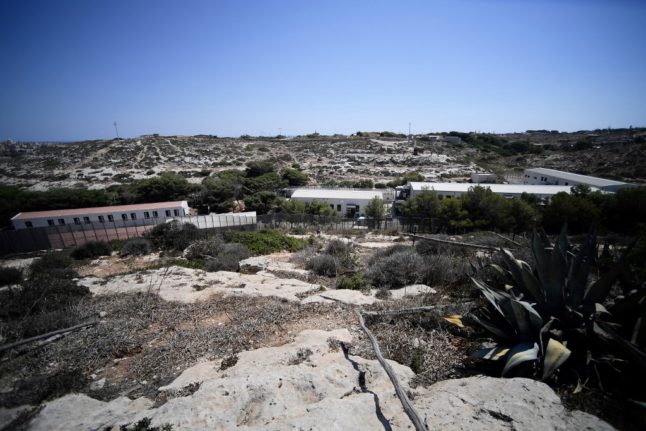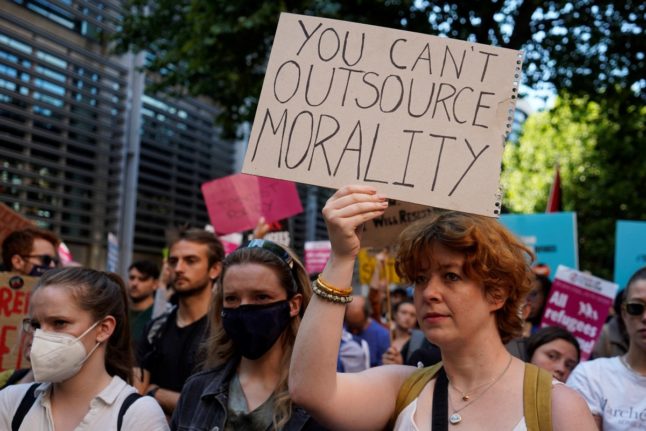The group’s ship, the Nadir, rescued another 22 people and took them to the Italian island of Lampedusa, said Stefen Seyfert of ResQship. Their boat sank overnight Saturday to Sunday.
Among those rescued were men, women and children from Cameroon, Ivory Coast and Mali, Ingo Werth, captain of the Nadir, told AFP.
A pregnant woman was among those saved, while the boat’s crew also recovered the bodies of two men.
In all, around 40 migrants were on the boat when it left Sfax in Tunisia, said Seyfert.
“We did everything we could to save more people, but didn’t manage to,” he added. He acknowledged the “good cooperation” with the Italian coastguard.
According to the Italian news agency ANSA, nine women were among the survivors. It put the number of missing at 18.
The migrants are believed to have paid 3,000 Tunisian dinars (about $980) each to get passage on the vessel.
READ ALSO: ‘More will drown’: Italy accused of breaking international law on migrant rescues
Describing their operation earlier Sunday on Twitter, ResQship said that when they arrived at the scene of the wreck, the migrants had already been in the water for about two hours.
An ‘unspeakable tragedy’
As well as rescuing 22 people, they had recovered two bodies, they said.
“This is an unspeakable tragedy that could — and should — have been prevented by a humanitarian approach to migration instead of barb-wiring the European borders,” the group added.
READ ALSO: Italy impounds Banksy-funded migrant rescue boat under new rules
In the last few days, thousands of migrants have landed on Lampedusa, which lies only about 150 kilometres (90 miles) from the Tunisian coast.
This incident is the latest in a series of disasters in the Mediterranean Sea, where dozens of migrants attempting the crossing have drowned and dozens more have had to be rescued from flimsy vessels.
They are increasingly being used as a springboard for the perilous attempts by West Africans, Sudanese and others to reach safety and better lives in Europe.
READ ALSO: Anger as Italy accused of illegally rejecting migrants rescued at sea
Italy has been complaining for some time about the numbers of migrants arriving on its shores.
According to interior ministry figures, more than 14,000 migrants have arrived in Italy since the beginning of the year — significantly more than the 5,300 who had arrived over the same period in 2022 and the 4,300 who arrived in 2021.



 Please whitelist us to continue reading.
Please whitelist us to continue reading.
Member comments